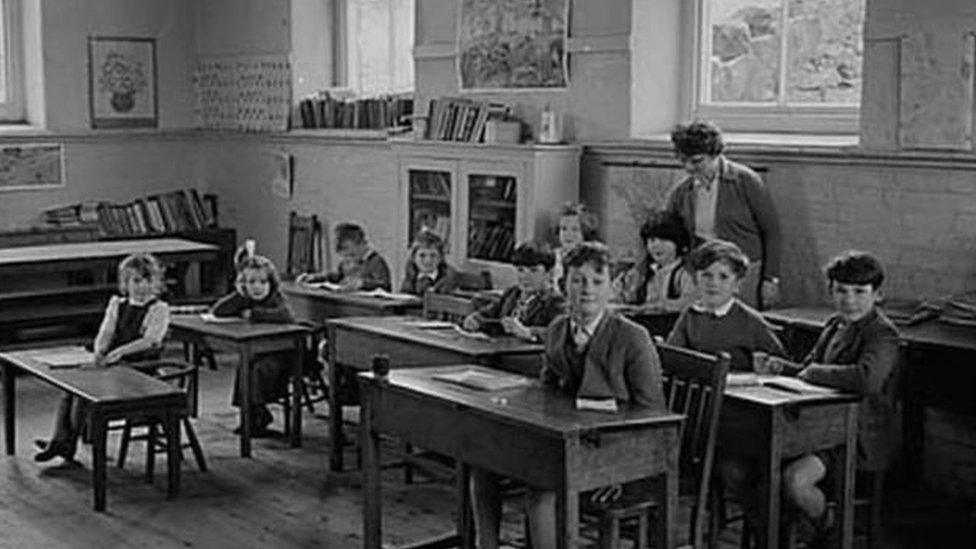Palm Sunday arrests: Welsh nationalists recall dawn raid
- Published

Gethin was arrested during the notorious Palm Sunday arrests and later released without charge
It was five-o-clock in the morning when Gethin ap Gruffydd and his partner's bedroom door was smashed in and he was pulled naked out of bed by special branch officers.
He was bundled into another room while Sian Ifan was held against a wall.
The pair were being arrested for their suspected involvement in a rash of arson attacks on Welsh holiday homes. Two days later, they were released without charge.
Now, a police officer who was involved in the notorious coordinated Palm Sunday arrests of Welsh nationalists in 1980 has told BBC podcast Drowned - the flooding of a village forces were put under "political pressure" to take action.
The arson attacks on holiday homes first began in 1979 when a handful of properties in Gwynedd and Pembrokeshire were attacked.
At a time when unemployment was rising, buyers with deep pockets, many from England, were turning cottages and houses in the country's rural Welsh language heartlands into second homes, and the attacks were thought to be a protest against this.
Dubbed the Meibion Glyndwr campaign, they were to continue through the '80s and into the '90s, with 228 recorded attacks in total.
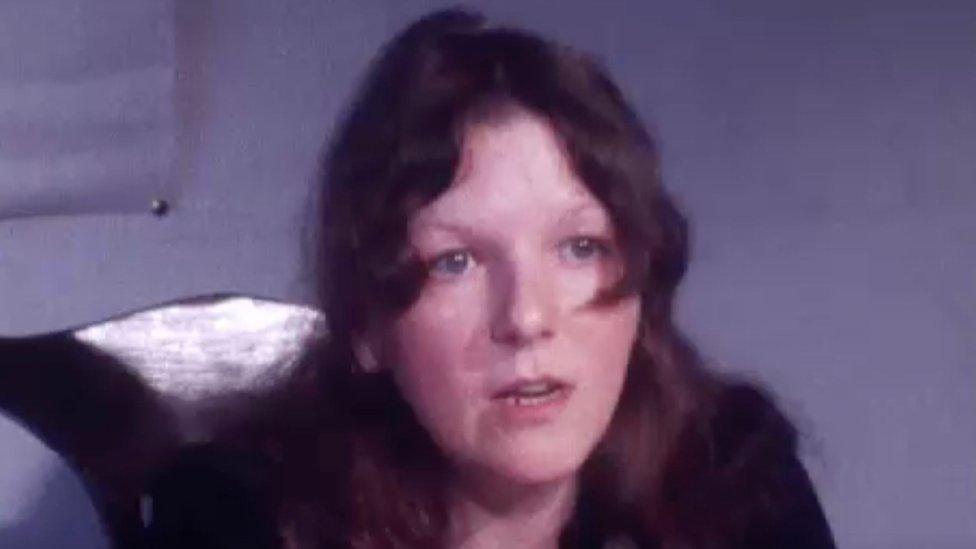
When Sian was arrested she was involved with Cofiwn - a historical society set up to bolster a sense of Welsh identity
But early in the campaign, on 30 March 1980, coordinated raids by special branch and police officers targeted about 50 people across Wales.
It is understood only four of those arrested were convicted, and many felt the arrests, which targeted people with Welsh nationalist sympathies, were largely indiscriminate.
Sian Ifan and her partner Gethin ap Gruffydd were among those targeted.
Gethin had been sent to prison in 1969 for organising the Free Wales Army (FWA), a paramilitary Welsh nationalist organisation, and by 1980 he was living in a flat in Aberystwyth, Ceredigion, with Sian.
The couple were involved with Cofiwn - a historical society set up to bolster a sense of Welsh identity.
"We used to have about 50 or 60 people coming with us on field trips to different historical places throughout Wales," recalled Sian.
"People enjoyed doing that because we all had banners and everything. It was all very colourful and dramatic."
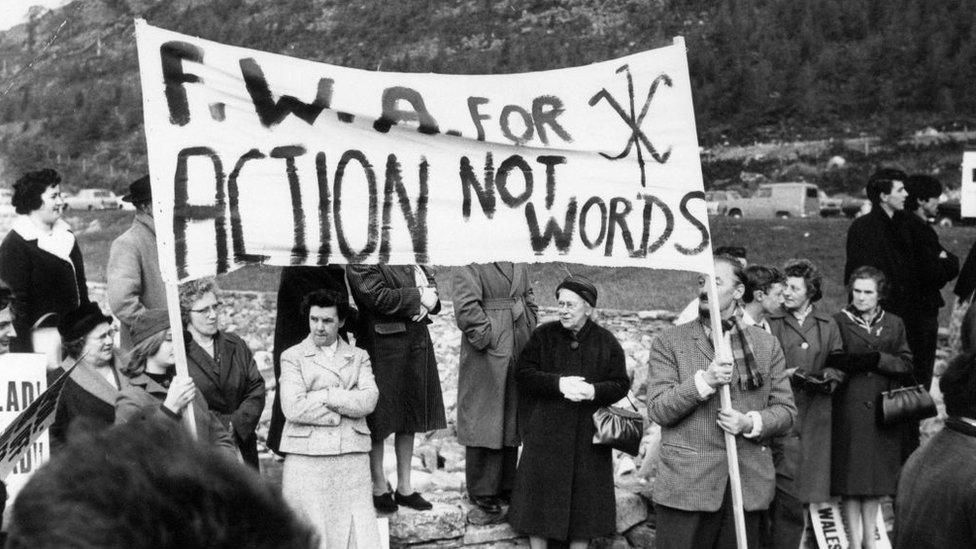
Free Wales Army demonstration at Tryweryn, north Wales, November 1965
Sian and Gethin had been to a meeting of Cofiwn the day before and believed members of the society were under suspicion because some had been involved with political activities in the 1960s.
"They grabbed Gethin first of all because he was nearer the edge of the bed and dragged him off to the second bedroom," said Sian.
"They stuck me against the wall in one bedroom. They were arresting me for causing £250,000 worth of damage."
The couple were taken to a police station.
"Nobody knew where we were," she said.
"They wouldn't let family know where we were. They wouldn't let friends know where we were. We were totally disappeared off the face of the earth."
But she said police didn't have any evidence and after two or three days the couple were released.
"They were just taking people in, in the hope that if you shake the tree something will fall out," she said.
"They said to Gethin, 'oh come on who do you think you're kidding? You were involved in the 60s, you were arrested and imprisoned for nine months for organising the FWA, and you expect us to believe you had nothing to do with this?'
"When we finally got home I got home to a flat that had been totally pulled apart."
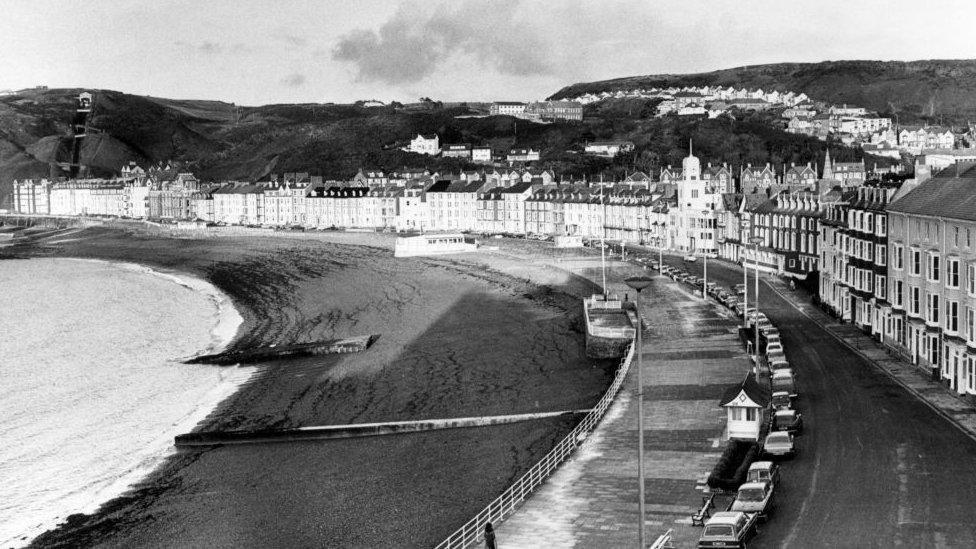
Gethin and Sian were living in Aberystwyth when they were arrested in 1980
Palm Sunday 1980 is a day also seared in the mind of former police superintendent Clive McGregor.
He was involved in arrests in north-east Wales, which he said did include "some evidence", but he believes other arrests, dubbed Operation Tan - or Operation Fire - targeted people simply because they were Welsh nationalists.
"I think that's a fact, and subsequently borne out by the fact that the police service had to make recompense to people for false arrest," he said.
He said the operation was "more a fishing exercise than an intelligence-led operation".
The arson attacks had received a lot of media attention, and he said forces were under intense pressure to get to the bottom of who was behind them.
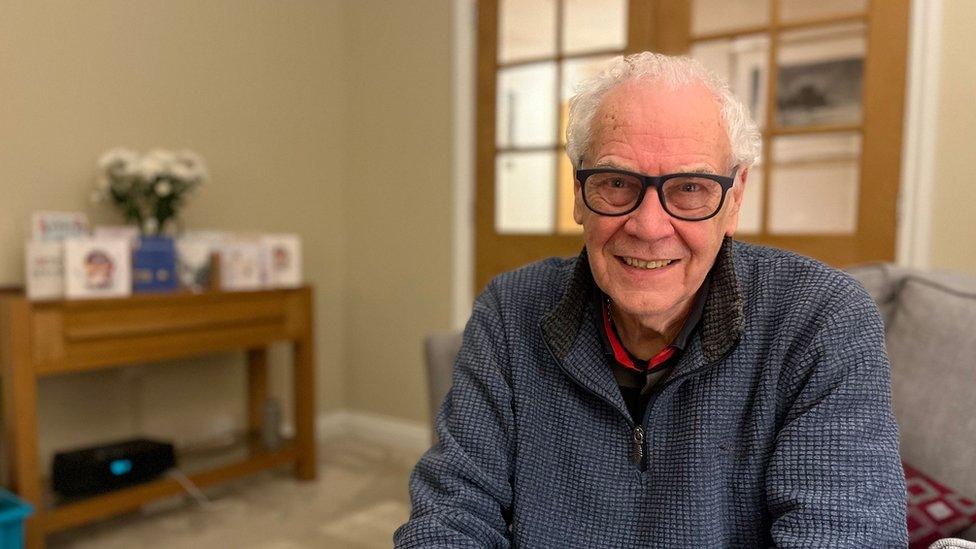
Clive said the Palm Sunday arrests took place after police forces were put under "political pressure" to take action
"I think you have to look at political pressure there. Something has to be done," he said.
"And of course the pressure comes down from Whitehall, through the Home Office, down to the [police] chiefs."
But after the raids, it soon emerged many arrests had gone ahead based on faulty or insufficient intelligence.
"We realised that we'd done the best we could with the intelligence we had available but that wasn't good enough, at that time," said Clive, who is also a former leader of Anglesey council.
In 1993, one person was convicted of being connected to the arson campaign.
Sion Aubrey Roberts was jailed for 12 years in 1993 for posting firebombs.
Clive believes the police raids damaged important relationships with communities.
"As a police service we did surrender, because of what we did, some goodwill," he said.
"I think later on, as the decades progressed and other incidents started happening, that even where there had been help and support in the past, it was very reluctantly given then, if at all," he said.
Asked by journalist Betsan Powys if that was because people didn't like what they'd seen in 1980, he replied: "Probably, yes."
Drowned - The Flooding of a Village is available on BBC Sounds

COFIWCH DRYWERYN: A new podcast explores a dark and controversial chapter in Welsh history
HEART VALLEY: A day in the life of a curious Welsh shepherd

Related topics
- Published5 March 2023
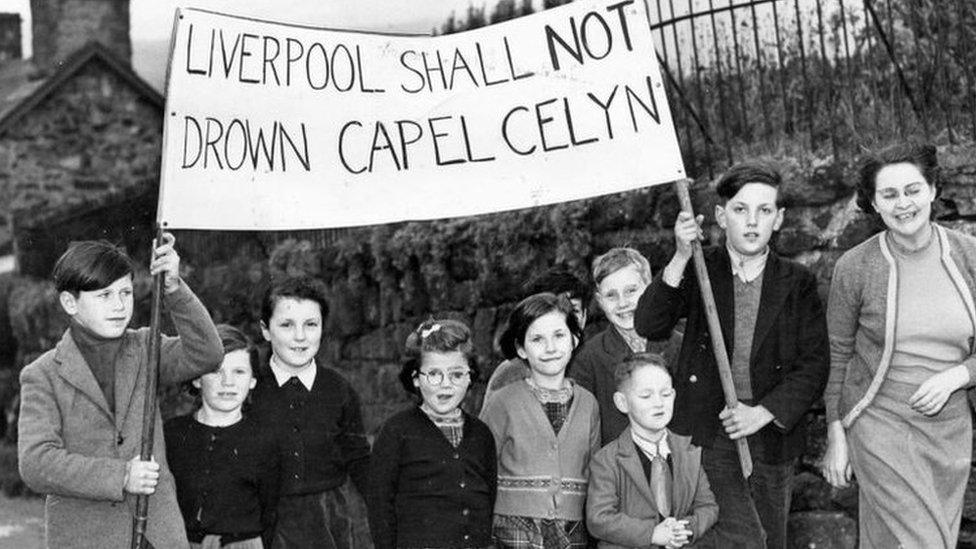
- Published10 February 2023
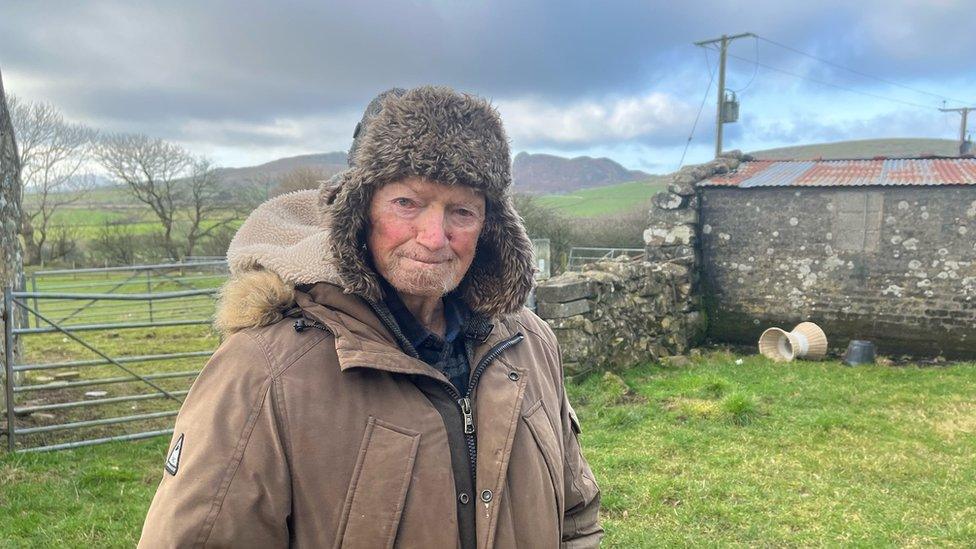
- Published21 October 2015
